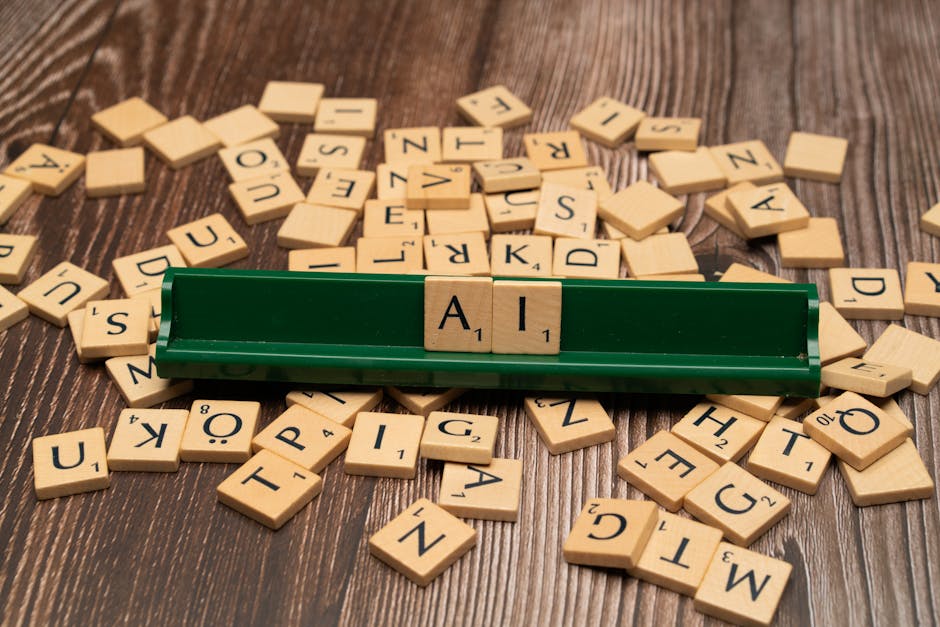The Future of Learning: How AI Transforms Online Education in 2025
As we navigate the complexities of a rapidly evolving technological landscape, it’s hard not to wonder: What does the future hold for online education? In 2025, artificial intelligence (AI) is set to redefine the learning paradigm, combining personalization, accessibility, and efficiency in ways we've only begun to imagine. This transformation doesn’t just enhance the educational experience—it revolutionizes it.
AI-Powered Personalization: Tailoring the Learning Experience

One of the most significant advancements AI brings to online education is the ability to personalize learning. In 2025, AI algorithms will analyze user behavior, learning styles, and performance data to create customized learning paths. Imagine a scenario where every student receives a unique curriculum tailored specifically to their strengths and weaknesses.
For instance, if a student struggles with mathematics but excels in literature, AI will adjust the curriculum by introducing more relevant math concepts alongside literature analysis that connects the two subjects. This level of personalization drastically enhances engagement, resulting in a more motivated learner. According to a 2023 report by the Institute for the Future of Education, students who experienced AI-driven Personalized Learning Environments (PLE) reported a 70% increase in retention rates compared to traditional methods.
Intelligent Tutoring Systems: Your AI-Powered Mentor

The role of tutors is evolving in the AI-driven landscape of 2025. Intelligent Tutoring Systems (ITS) have become common, allowing students to receive real-time feedback and assistance anytime, anywhere. These systems use natural language processing (NLP) to understand student queries, respond contextually, and guide them through complex problems with patient, supportive instruction.
Imagine needing help with a challenging math problem at midnight and being able to access an AI tutor that not only understands your question but guides you through the solution step by step. Studies have shown that students interacting with ITS perform significantly better in their assessments than those learning without such systems.
Gamification and AI: Making Learning Fun

Incorporating gamification into learning is another area where AI excels. By integrating game design elements into online education platforms, AI can create engaging experiences that motivate and excite learners. As students progress, they can unlock achievements, earn points, and compete in friendly challenges—all guided by sophisticated AI algorithms that tailor difficulty levels and objectives based on performance data.
For example, a language learning app in 2025 might use AI to analyze your vocabulary strengths and weaknesses, providing personalized quizzes and games designed to reinforce learning in a fun way. This approach not only maintains learner engagement but also fosters a sense of community among learners who are competing and collaborating simultaneously.
Accessibility in Education: Breaking Down Barriers

Accessibility has long been a challenge in education. However, with AI's continuous progression, barriers are being dismantled like never before. AI technologies are capable of translating content into multiple languages, providing real-time subtitles during video lectures, and converting text to speech, ensuring that diverse student populations can learn effectively regardless of their backgrounds.
In 2025, platforms equipped with AI will regularly analyze user data to identify potential barriers to learning and suggest resources that cater to specific needs, such as visual aids for students with learning disabilities or simplified texts for non-native speakers. This proactive approach not only enhances individual learning experiences but also promotes inclusivity, making education a universal right rather than a privilege.
The Role of AI Educators: Shaping Future Classrooms

As AI evolves, it is likely that the role of educators will also change. While traditional teaching methods remain essential, AI-savvy educators will collaborate with AI systems to create dynamic learning environments. For instance, a teacher might utilize AI tools to track student performance over time, adjust lesson plans, and even automate administrative tasks like grading. This allows teachers to focus on what truly matters: fostering relationships with students and creating engaging, meaningful learning experiences.
In this evolving role, teachers will act more as facilitators—the guiding force behind students’ personal discovery and growth. As AI takes over repetitive tasks, educators can dedicate their time to engaging in personalized discussions with students, helping them to connect academic concepts with real-world applications.
AI in Assessment: Evolving Evaluation Methods

Assessment is a pivotal component of education, and AI is transforming evaluation methods. Traditional tests may soon become relics of the past, replaced by more comprehensive AI-driven assessments. These evaluations will focus on process over product and give educators a clearer picture of a student's understanding and skills.
In 2025, assessments will rely on adaptive learning technologies, which consider a student's unique learning journey, rather than a one-size-fits-all approach. Real-time feedback will enable educators to adjust their teaching methods according to the needs of individual students.
Imagine a scenario where, instead of a final exam, students engage in continuous assessment through projects, discussions, and even collaborative problem-solving exercises, all being analyzed and scored by AI systems. This shift allows for a more holistic view of student progress, tailored to individual learning experiences.
Collaborative Learning: AI Connecting Global Classrooms

In 2025, the rise of AI will foster collaborative learning on a global scale. By utilizing platforms powered by AI, learners can connect with peers from different cultures and backgrounds, enriching the educational experience through diverse perspectives. AI will facilitate this collaboration by automatically forming study groups based on compatible learning styles, interests, or project requirements, allowing students to work together seamlessly.
Imagine participating in a project with fellow students from Tokyo, Berlin, and Nairobi, where language barriers are bridged through real-time translation powered by AI technology. These collaborative experiences prepare students for a globalized workforce and cultivate crucial social skills for future endeavors.
Employing Data-Driven Decisions for Continuous Improvement

As with any educational endeavor, monitoring outcomes is essential for continual improvement. AI’s ability to analyze vast amounts of data has made it invaluable in tracking student progress, identifying trends, and diagnosing potential issues before they become significant problems. In 2025, AI will help educators and institutions make data-driven decisions with unprecedented precision.
Machine learning algorithms will provide educational institutions insights into which courses and teaching methods yield the best outcomes, allowing for real-time adjustments. This level of responsiveness ensures continuous improvement in student learning experiences and academic performance.
Challenges and Ethical Considerations

While the promise of AI in education is immense, it’s crucial to acknowledge the challenges and ethical considerations: data privacy, inherent biases in AI algorithms, and the potential marginalization of certain groups. Educational institutions will need to navigate these challenges carefully. Cybersecurity measures must be robust to protect sensitive student data, and the teams behind AI tools must rigorously test their products for fairness and inclusivity.
As educators and policymakers embrace AI, it’s essential to work collaboratively to ensure that the technology enhances rather than detracts from the teacher-student relationship. The human element in education remains irreplaceable, and technology should act as a tool that assists, not replaces, human instructors.
Looking Ahead: The Continuous Evolution of AI in Learning

The journey of integrating AI into online education is far from complete. As we venture deeper into 2025 and beyond, we can anticipate innovations that blur the lines between digital and academic spheres. Augmented and virtual reality (AR/VR) experiences, integrated with AI, may create immersive educational environments that simulate real-world situations, encouraging experiential learning.
Think of an aspiring medical student performing surgery in a virtual operating room alongside leading professionals from around the globe, gaining invaluable insights and skills from the comfort of their own home. Such advancements could become commonplace, enabling participants to access hands-on experiences, regardless of their geographic location.
Final Thoughts: Embracing the AI-Enhanced Future of Education
The integration of AI into online education is not merely a trend—it's a revolution that opens up doors to endless possibilities. As we approach 2025, educators, students, and institutions must embrace this transformation with open arms, recognizing the potential that lies within personalized learning, accessible resources, and collaborative innovation.
By ensuring that technology acts as an ally rather than an adversary, we can enrich the educational experience for everyone. Just as artificial intelligence evolves, so too must our approach to education evolve, ensuring that learners are equipped not just for today’s jobs but for the future—all while enhancing their enjoyment and engagement in the learning process.
As we continue to tread this path toward a future where AI and education are seamlessly intertwined, let us not forget that at the heart of every great educational experience remains an essential human touch.

